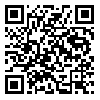Volume 18, Issue 1 (2026)
Res Med Edu 2026, 18(1): 5-9 |
Back to browse issues page
Download citation:
BibTeX | RIS | EndNote | Medlars | ProCite | Reference Manager | RefWorks
Send citation to:



BibTeX | RIS | EndNote | Medlars | ProCite | Reference Manager | RefWorks
Send citation to:
Jafari A, Aboutaleb E, Hamidi Madani A, Azizzade Dobakhshari M. Content Creation by Artificial Intelligence in Medical Education: Impacts and Challenges. Res Med Edu 2026; 18 (1) :5-9
URL: http://rme.gums.ac.ir/article-1-1480-en.html
URL: http://rme.gums.ac.ir/article-1-1480-en.html
Urology Research Center, Razi Hospital, School of Medicine, Guilan University of Medical Sciences, Rasht, Iran. , a.hamidimadani@gmail.com
Abstract: (924 Views)
Nowadays, artificial intelligence (AI) is considered a key tool in medical education, significantly impacting the quality of student learning. The present research examines the advantages and challenges of using AI in content creation. Among the benefits are the personalization of the learning experience and the production of diverse, high-quality educational content that helps students better understand complex concepts. However, the need for human oversight of generated content and ethical issues concerning privacy and data security are among the significant challenges in this area. Ultimately, with proper management of these challenges, AI can become an effective tool for improving the quality of medical education.
Type of Study: Research Note |
Subject:
Educational technology, e-Learning,Virtual Education
References
1. Chan KS, Zary N. Applications and challenges of implementing artificial intelligence in medical education: integrative review. JMIR Med Educ. 2019. 5(1): e13930. [DOI:10.2196/13930]
2. Masters K. Artificial intelligence in medical education. Med Teach. 2019;41(9): 976-980. [DOI:10.1080/0142159X.2019.1595557]
3. Zarei M, Eftekhari Mamaghani H, Abbasi A, Hosseini MS. Application of artificial intelligence in medical education: a review of benefits, challenges, and solutions. Medicina Clínica Práctica. 2024;7(2):100422. [DOI:10.1016/j.mcpsp.2023.100422]
4. Бобро Н. Advantages and disadvantages of implementing artificial intelligence in the educational process. Молодий вчений. 2024;4(128):72-76. [DOI:10.32839/2304-5809/2024-4-128-38]
5. Mahmoudi A, Bahrekazemi M. Artificial intelligence and its impact on cyber security and data. Fundamental Res law. 2024; 1(3): 86-104.[Persian] [Link]
6. Jafari F, Keykha A. Identifying the opportunities and challenges of artificial intelligence in higher education: a qualitative study. J Appl Res Higher Educ. 2024; 16(4): 1228-1245. [DOI:10.1108/JARHE-09-2023-0426]
7. McCormick K. AI Technology. From GI to Z: A generational guide to technology, 1985. [Link]
8. Puckett J. Zotero: A guide for librarians, researchers, and educators. Assoc of Cllge & Rsrch Libr; 2011. [Link]
9. Arnavut A, Bicen H, Nuri C. Students' approaches to massive open online courses: the case of Khan academy. BRAIN. Broad Res Artif Intell Neurosci. 2019;10(1): 82-90. [DOI:10.70594/brain/v10.i1/8]
10. Reid JR. Precision education for personalized learning. J Am Coll Radiol. 2023;20(11): 1131-1134. [DOI:10.1016/j.jacr.2023.05.018]
11. Eysenbach G. The role of ChatGPT, generative language models, and artificial intelligence in medical education: a conversation with ChatGPT and a call for papers. JMIR Med Educ. 2023; 9(1): e46885. [DOI:10.2196/46885]
12. Preiksaitis C , Rose C. Opportunities, challenges, and future directions of generative artificial intelligence in medical education: scoping review. JMIR Med Educ. 2023; 9: e48785. [DOI:10.2196/48785]
13. Olatunde-Aiyedun TG, Hamma H. Impact of artificial intelligence (AI) on lecturers' proficiency levels in MS PowerPoint, Canva and Gamma in Nigeria. Horizon J Hum Artif Intell. 2023;2(8): 1-16. [] [Link]
14. Mansourzadeh A, Rasouli S, The future of medical education: a review of the opportunities and challenges of artificial intelligence integration. Med Educ Bull. 2024;5(2): 973-982. [DOI: 10.22034/meb.2024.491888.1102]
15. Holzinger A, Zatloukal K, Müller H. Is human oversight to AI systems still possible? Biotechnol. 2025;85:59-62. [DOI:10.1016/j.nbt.2024.12.003]
16. Tozsin A, Ucmak H, Soyturk S, Aydin A, Gozen AS, Fahim MA, et al. The role of artificial intelligence in medical education: a systematic review. Surg Innov. 2024;31(4): 415-423. [DOI:10.1177/15533506241248239]
17. Nguyen A, Ngo HN, Hong Y, Dang B, Nguyen BT. Ethical principles for artificial intelligence in education. Educ Inf Technol (Dordr). 2023;28(4): 4221-4241. [DOI:10.1007/s10639-022-11316-w]
Send email to the article author
| Rights and permissions | |
 |
This work is licensed under a Creative Commons Attribution-NonCommercial 4.0 International License. |




